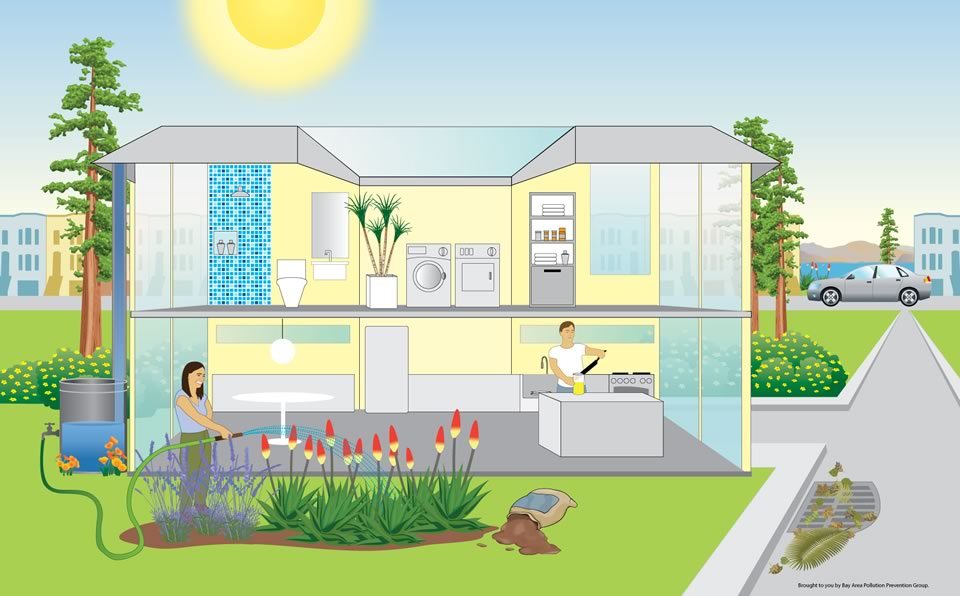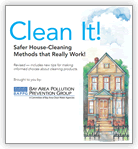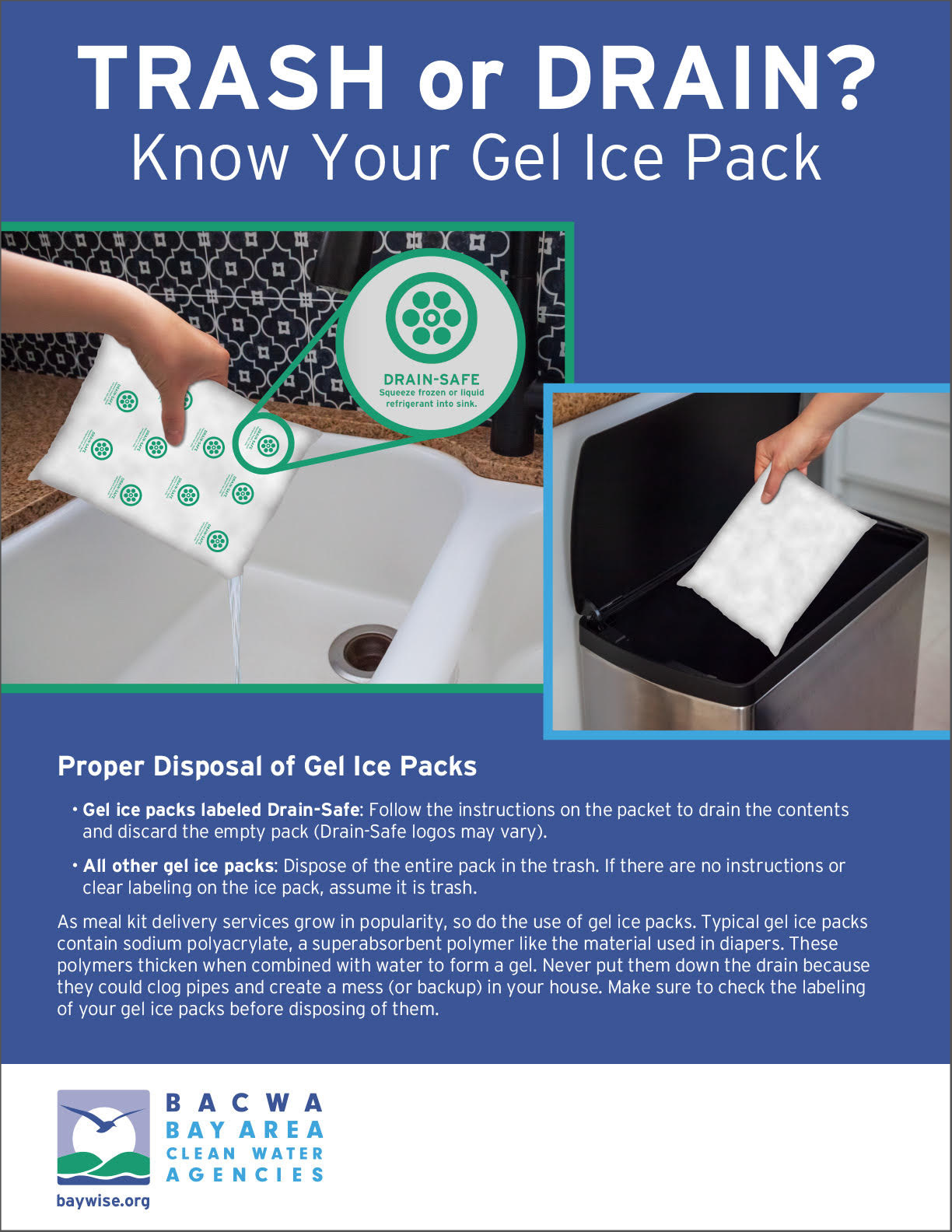We’re All In It Together!
The San Francisco Bay is part of your daily life. Every drop of water we use at home and work drains into San Francisco Bay. Wastewater travels from kitchens and bathrooms to wastewater treatment plants before it’s discharged to the Bay. Treatment can remove many pollutants, but some complex chemicals may resist degradation and pass through to the Bay. Stormwater from roads, sidewalks and gardens flows into storm drains and directly into creeks and the Bay without treatment. (Except in San Francisco, where some stormwater is treated at wastewater treatment plants.)
Stormwater carries all sorts of things straight to our creeks and the Bay: herbicides and pesticides from lawns and gardens, litter, pet waste, detergent from car washing, and everything else that doesn’t get disposed of properly in trash cans.
Because wastewater and stormwater can carry pollutants from everyday activities like cooking, gardening, maintaining your car, and even spring-cleaning your garage and medicine cabinet, it’s important to prevent pollution at the source.
Tour Our Eco-Home
Our Eco-Home guides you, room-by-room, bringing you tips that will make your home and San Francisco Bay healthier.
Clean It Guide
Download these safe house-cleaning methods that really work!
(PDF 600KB)
Trash or Drain?
Did you know there are different types of gel ice packs? Download this flyer (PDF 1.7MB) to learn how to properly dispose of them.
How to Dispose Of...
Fat, Cooking Oil & Grease (FOG)
When grease is poured down sinks it can solidify and cause sewer backups into houses or onto streets. The result is a greasy, smelly mess of pollutants entering storm drains, creeks, and the Bay. It harms wildlife both on land and in water and is expensive to clean up!
- Never pour fats, oil, or grease down drains, even if you have a garbage disposal.
- Pour cooking oil and grease into a sealable container with an absorbent such as paper garbage and discard with your other garbage.
- Recycle large amounts of grease or cooking oil (including from deep fryers) at Bay Area grease recycling locations.
- Use food strainers in kitchen sinks to catch food particles and scrape leftover food waste into the garbage or compost container instead of the garbage disposal.
- Sewer backups require fast attention due to potential exposure to harmful bacteria. To report sewer problems in your neighborhood, call your local non-emergency police department hotline.
Items with Mercury
Use our recycling location search engine to find nearby locations to dispose of mercury-containing products, specifically fluorescent lights, thermostats, and thermometers.
Unwanted Medicine
Medications that are flushed down toilets or poured down drains pollute waterways, including the San Francisco Bay. The presence of pharmaceutical compounds in treated wastewater is a growing environmental concern. Wastewater treatment plants were not designed to remove these types of chemicals, as well as those found in other household hazardous waste, which passes through the treatment process and is discharged straight into the Bay.
Your Cozy Fire Could Be Causing Air and Water Pollution
Burning wood and other items in your fireplace can create smoke full of carbon monoxide, benzene, formaldehyde, and dioxin. These toxic elements not only pollute our air, they also pollute local waters. Tiny particles within smoke eventually settle. They land in local waters, and on surfaces from which irrigation or rainwater runoff washes them into storm drains that funnel the water, untreated, into the bay.
Dioxin (a byproduct of incineration) is of particular concern because it has been characterized by the Environmental Protection Agency as a likely human carcinogen that increases the risk of cancer.
Here are ways you can help to reduce dioxin and other pollutants in the environment:
- Never burn wrapping paper, painted wood, particle board, plastics, Styrofoam or other trash.
- Switch from a traditional wood-burning fireplace to a natural-gas device, an EPA-certified wood stove, or a pellet stove to reduce emissions.
- Burn manufactured logs instead of wood in your fireplace. They burn cleaner, with substantially lower emissions of dioxin and other pollutants. Note: Follow instructions on the logs; some are not suitable for wood stoves or fireplace inserts.
- If you burn wood, make sure it is completely dry. Wet wood burns less efficiently and causes more pollution.
- Keep your fireplace or stove well maintained to improve air flow and reduce emissions.
- If you must burn, check for Spare the Air alerts. You could be fined for burning on a Spare the Air day. Visit SpareTheAir.org for information.


